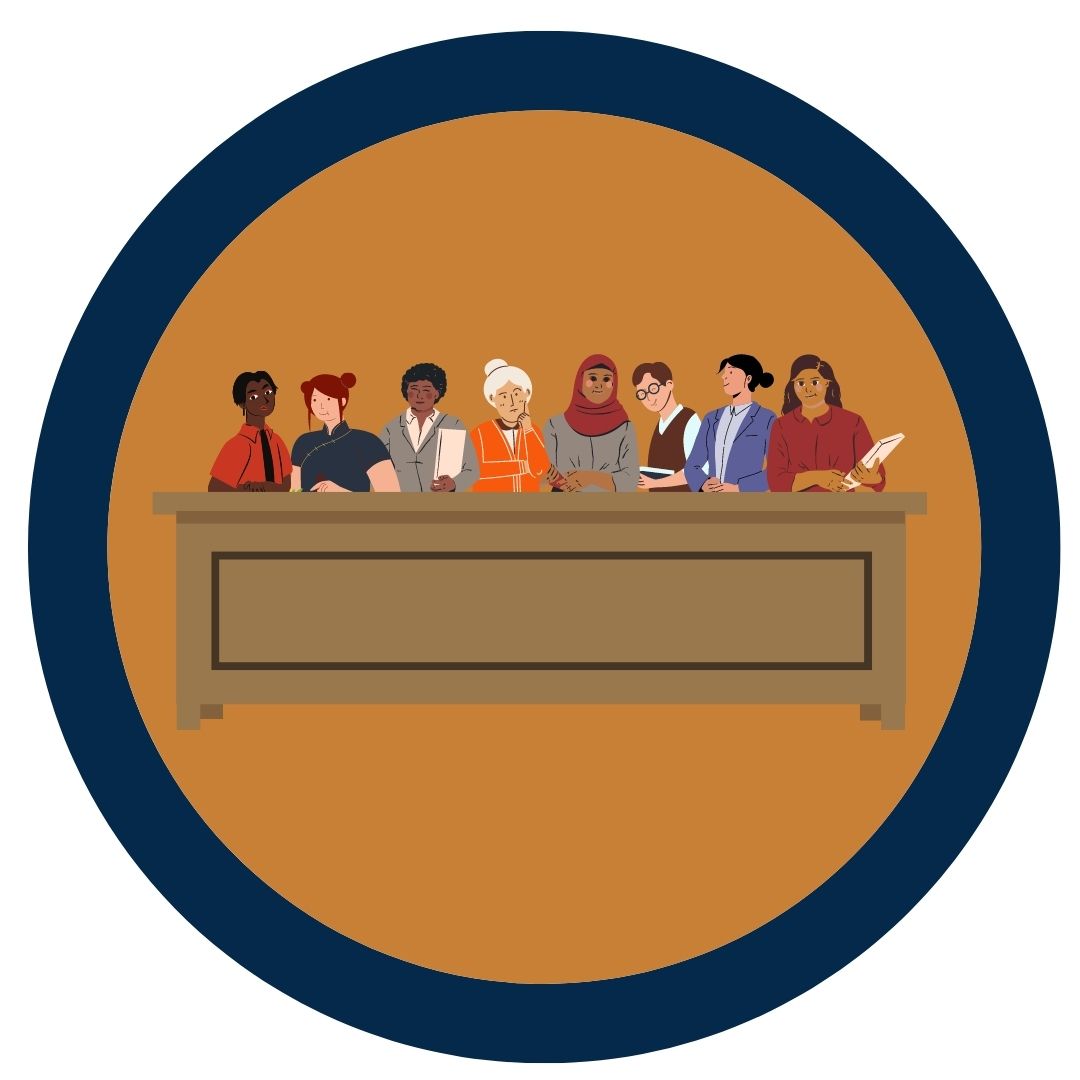The work of the federal courts impacts the lives of the American public in many ways. These are the most common ways people interact with the U.S. Courts.
 |
Jury Service
U.S. citizens at least 18 years of age may be called to jury service, one of the most important ways individual citizens become involved with the federal courts. Jury service is one of the most important civic duties you can perform. The protection of rights and liberties in federal courts largely is achieved through the teamwork of a judge and jury.
There are two types of judicial proceedings in the federal courts that use juries.
Criminal trial
An individual is accused of committing a crime that is considered against society. Twelve people, plus alternates, make up a criminal jury. A unanimous decision must be reached before a defendant is found guilty. The government must prove the crime was committed beyond a reasonable doubt.
Civil trial
Litigants seek remedies for private wrongs that don’t necessarily have a broader social impact. At least six people make up a civil jury. The jury must come to a unanimous decision unless specified otherwise. The standard of proof is a preponderance of the evidence, or more true than not.
Witnesses
Juries must base their decisions on evidence which will consist of the testimony of sworn witnesses and exhibits. Witnesses play an essential role in federal courts.
Court Cases
Federal courts have jurisdiction over cases involving:
- the United States Government,
- the U.S. Constitution or other federal laws, or
- controversies between states or between the U.S. government and foreign governments.
For instance, a claim by an individual to receive money under a federal government program such as Social Security, a claim by the government that someone has violated federal laws, or a challenge to actions taken by a federal agency might all be heard in federal court.
State courts handle most criminal cases, most contract cases, tort cases (personal injuries), and family law matters (marriages, divorces, adoptions). State court systems typically establish special courts to handle specific legal matters, e.g., probate court (wills and estates); juvenile court; family court; etc. State courts are the final arbiters of state laws and constitutions. Their interpretation of federal law or the U.S. Constitution may be appealed to the U.S. Supreme Court.
Few cases wind up in federal trial court, also called U.S. District Court. Judges encourage parties involved in a dispute to reach an agreement and avoid the expense and delay of a trial.
Bankruptcy
Federal courts have exclusive jurisdiction over all bankruptcy cases, which Congress has determined should be addressed in federal courts rather than state courts. This means that a bankruptcy case may not be filed in a state court.
The primary purposes of bankruptcy law is to help honest people who can no longer pay their creditors get a new start by liquidating their assets to pay debts, or by creating a repayment plan. Bankruptcy laws also protect troubled businesses and provide for orderly distributions to business creditors through reorganization or liquidation.
Naturalization Ceremonies
Federal courts hold ceremonies throughout the year where United States citizenship is formally granted and new citizens are officially welcomed. Many are held on or around September 17 to celebrate Constitution Day and Citizenship Day. Naturalization ceremonies are open to the public and may be attended by hundreds and sometimes thousands of people. These important civic events, conducted in courtrooms and at sites in the community, present an educational opportunity for promoting public understanding of the federal courts.
